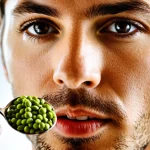Pregnancy is a time of joy, anticipation and, for some women, a time of unusual cravings. Among these cravings, many pregnant women in the UK find themselves reaching for a comforting cup of herbal tea. But are these teas safe for both mother and baby? With constant updates in medical research, it’s essential to stay informed about the potential benefits and risks associated with herbal teas during pregnancy.
The Attraction of Herbal Teas During Pregnancy
The allure of herbal teas during pregnancy is not unwarranted. Herbal teas are a tempting alternative to caffeinated drinks like coffee or standard tea. While a warm cup of herbal tea can provide comfort and relaxation, it’s essential to ensure they’re also safe for consumption during pregnancy.
Additional reading : How Do UK Health Guidelines Recommend Managing Gestational Anemia with Diet?
Herbal teas are composed of herbs, fruits, seeds, or roots steeped in hot water. They differ from traditional teas (black, green, oolong, white, and dark tea) that derive from the Camellia sinensis plant. Interestingly, herbal teas are often rich in antioxidants, anti-inflammatory, and anti-carcinogenic properties, promoting overall health.
But before you take your next soothing sip, let’s delve into the specifics of herbal teas and how they could impact pregnancy.
Have you seen this : How Can UK Pregnant Women Safely Participate in Group Exercise Classes?
Herbal Teas: The Good, The Bad, and The Caffeinated
Understanding the herbal teas’ safety during pregnancy boils down to knowing the ingredients and their effects on the body. Some herbs, in particular, are considered safe while others should be avoided.
Raspberry Leaf Tea can be a great boon for women nearing the end of their pregnancy. According to a Google Scholar search, research suggests that raspberry leaf tea may help shorten labour and lead to fewer interventions and complications during birth. However, it’s suggested that this tea should not be consumed until the last few weeks of pregnancy.
Chamomile Tea, renowned for its calming effects, can indeed help pregnant women combat insomnia and anxiety. However, its consumption should be moderate as it can, in high amounts, potentially lead to uterine contractions.
It’s also crucial to keep an eye on the caffeine content. Caffeine crosses the placenta and can affect your baby’s heart rate. Pregnant women are usually advised to limit their caffeine intake to 200 mg per day, equivalent to about one 11-ounce cup of coffee.
The List of Herbal Teas to Avoid During Pregnancy
There’s a list of herbal teas that pregnant women should avoid due to their potential adverse effects on pregnancy. These include teas containing herbs such as pennyroyal, dong quai, senna, and others which, according to medicine scholars, can instigate uterine contractions, potentially causing miscarriage.
Furthermore, it’s also vital to avoid "diet" or "detox" teas. These teas often contain laxatives that can lead to dehydration, a condition you definitely want to steer clear of during pregnancy.
Herbal teas with a high caffeine content, such as yerba mate, should also be avoided.
Making Safe Herbal Tea Choices
So, with the herbal teas that should be avoided off the table, how can pregnant women make safe choices when it comes to consuming herbal teas?
Firstly, it’s necessary to read the ingredient list of the tea carefully. Be aware of any unfamiliar herbs and research their safety during pregnancy or consult your healthcare provider.
Also, consider the quality of the tea. Opt for organic teas if possible, as these will be free from pesticides and other harmful chemicals.
It’s also advisable to limit the consumption of the same herbal tea throughout the day. Diversifying your tea choices can help limit any potential risks associated with consuming too much of a single herb.
Finally, always remember that herbal teas should not replace meals. They’re a complement to a healthy diet, not a substitute for real food.
The Takeaway
Herbal teas can offer many benefits, but it’s crucial for pregnant women to be cautious of their choices. While raspberry leaf and chamomile teas can be beneficial, it’s important to consume them in moderation and at the right stage of pregnancy. Always be wary of the caffeine content, and steer clear from teas with potentially harmful herbs.
Knowledge is power when it comes to making safe choices for you and your baby. So, let’s raise a healthy, balanced cup to the exciting journey of motherhood.
How Herbal Medicine Relates to Herbal Teas
Herbal medicine employs plants, or mixtures of plant extracts, to treat illness and promote health. It aims to restore your body’s ability to protect, regulate and heal itself. It’s about more than just treating your symptoms – it’s about looking after your overall physical and emotional wellbeing. Herbal teas are a type of herbal medicine that’s been around for thousands of years and is still practiced today.
In the context of pregnancy, using herbal medicine or herbal teas can be a natural way to alleviate some common pregnancy symptoms. For instance, ginger tea is often recommended to relieve nausea and vomiting in the first trimester. A green tea, known for its rich antioxidants, can help boost overall health. However, the caffeine content in green tea needs to be monitored.
A study mentioned in a PMC free article in the PubMed Google Scholar search suggests that peppermint tea can help with morning sickness. Red raspberry leaf, as mentioned earlier, is often consumed in the later weeks of pregnancy to prepare the uterus for birth.
But, it’s crucial to remember that while herbal teas are a form of herbal medicine, not all herbs are safe during pregnancy. What works for one woman might not work for another. Therefore, always consult your healthcare provider before introducing any new herbal teas into your diet during pregnancy.
Herbal Teas: Concluding Thoughts
Pregnancy is an exciting time, but it can also be filled with uncertainty. When it comes to what you ingest, it’s always better to be safe than sorry. As we’ve discussed in this article, some herbal teas can provide comfort and health benefits during pregnancy. Yet, some should be avoided due to potential risks to you and your baby.
It’s essential to choose quality teas from reputable sources, read the ingredients carefully, limit your caffeine intake, and consult your healthcare provider before making any significant changes to your diet. Remember, while herbal teas can complement a healthy diet, they aren’t a substitute for nutritious, balanced meals.
So, as you navigate through the weeks of your pregnancy, armed with information from this article, PubMed, Google Scholar, and your healthcare provider, you can make informed decisions about which herbal teas are best for you and your baby.
In conclusion, this journey of motherhood is unique, and every decision you make contributes to the story. Here’s to enjoying a safe pregnancy, a comforting cup of herbal tea in hand, and the anticipation of the best baby moments to come.









